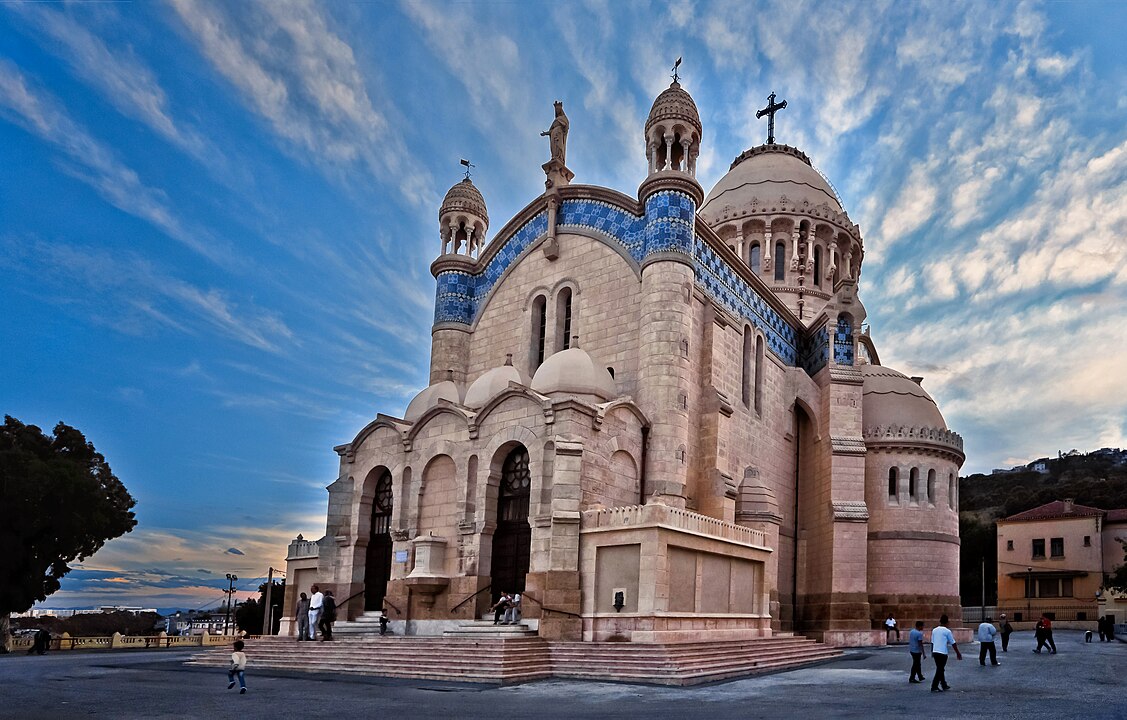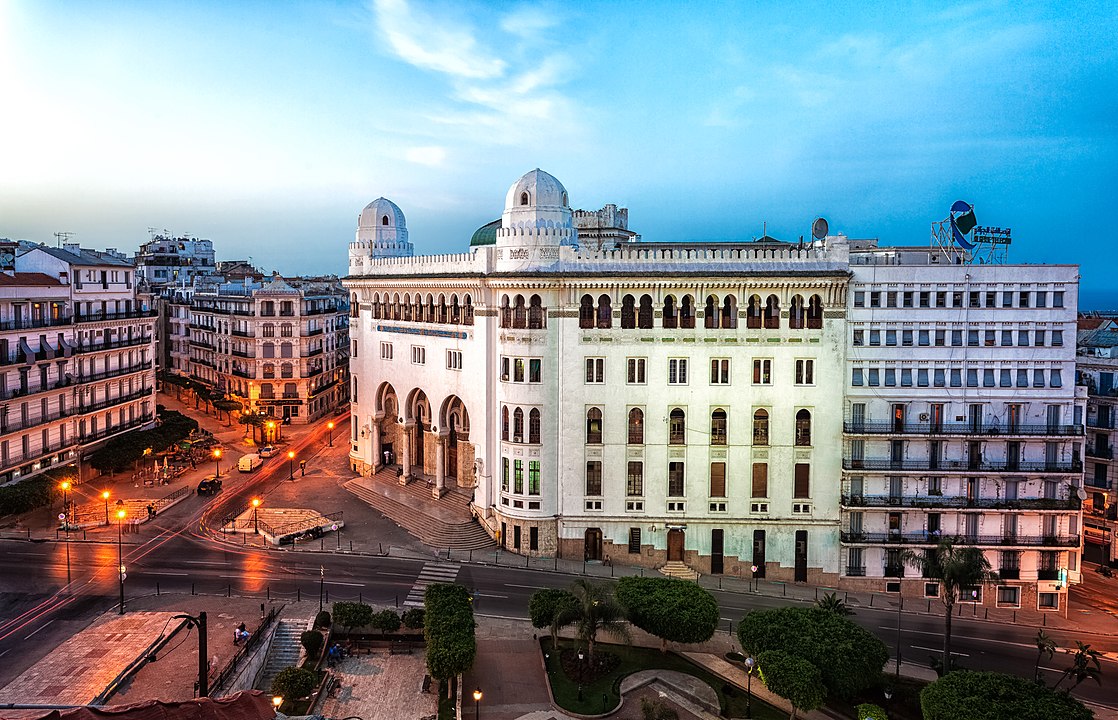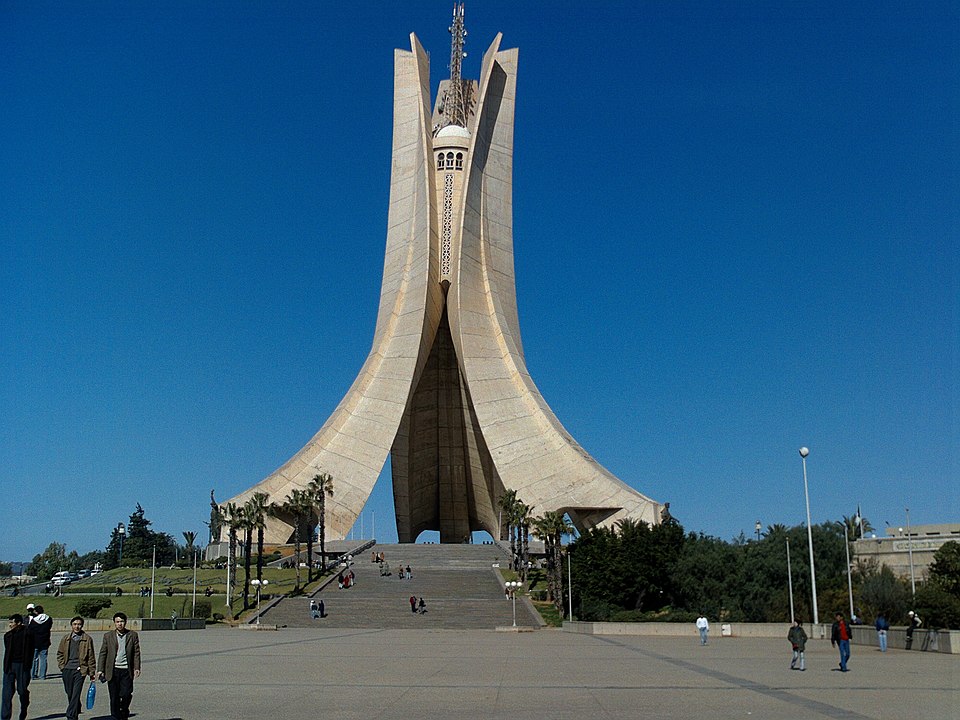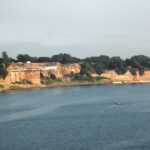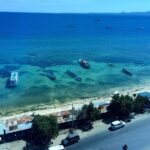Quick Bits:
Algiers, the capital of Algeria, is a city where history meets modernity. From its stunning Mediterranean coastline to its historical Casbah, Algiers offers a unique blend of French colonial influence and traditional Berber culture. Known as “El Bahdja,” meaning “The Joyful,” it is a place that enchants visitors with its vibrant streets, architectural marvels, and warm hospitality.
Key Highlights
- Cultural Hub: A melting pot of influences from Berber, Arab, and French cultures.
- Historical Landmarks: Home to the UNESCO-listed Casbah of Algiers.
- Natural Beauty: Stunning views of the Mediterranean and lush gardens.
- Architectural Wonders: A mix of Ottoman palaces, French colonial buildings, and modern designs.
- Dynamic Atmosphere: Bustling markets, lively neighborhoods, and rich culinary traditions.
General Information
Algiers is the political, economic, and cultural heart of Algeria. With a population of around 3.5 million, it is the largest city in the country. Its official language is Arabic, but French is widely spoken due to its colonial past. The local currency is the Algerian dinar (DZD).
The city serves as a gateway to North Africa and the Mediterranean, with an international airport and a well-connected port. Algiers is a popular destination for history enthusiasts, architecture lovers, and travelers seeking an authentic North African experience.
Geography Information
Algiers is located in northern Algeria, along the Mediterranean Sea. The city stretches across a hilly terrain, giving it a dramatic skyline and offering panoramic views. To the east lies the historic Casbah, perched on a hill, while the newer European-style neighborhoods extend towards the coastline.
The Mitidja Plain surrounds the city, with the picturesque Atlas Mountains in the backdrop. This unique geography creates a diverse environment, combining urban landscapes, coastal beauty, and nearby natural escapes.
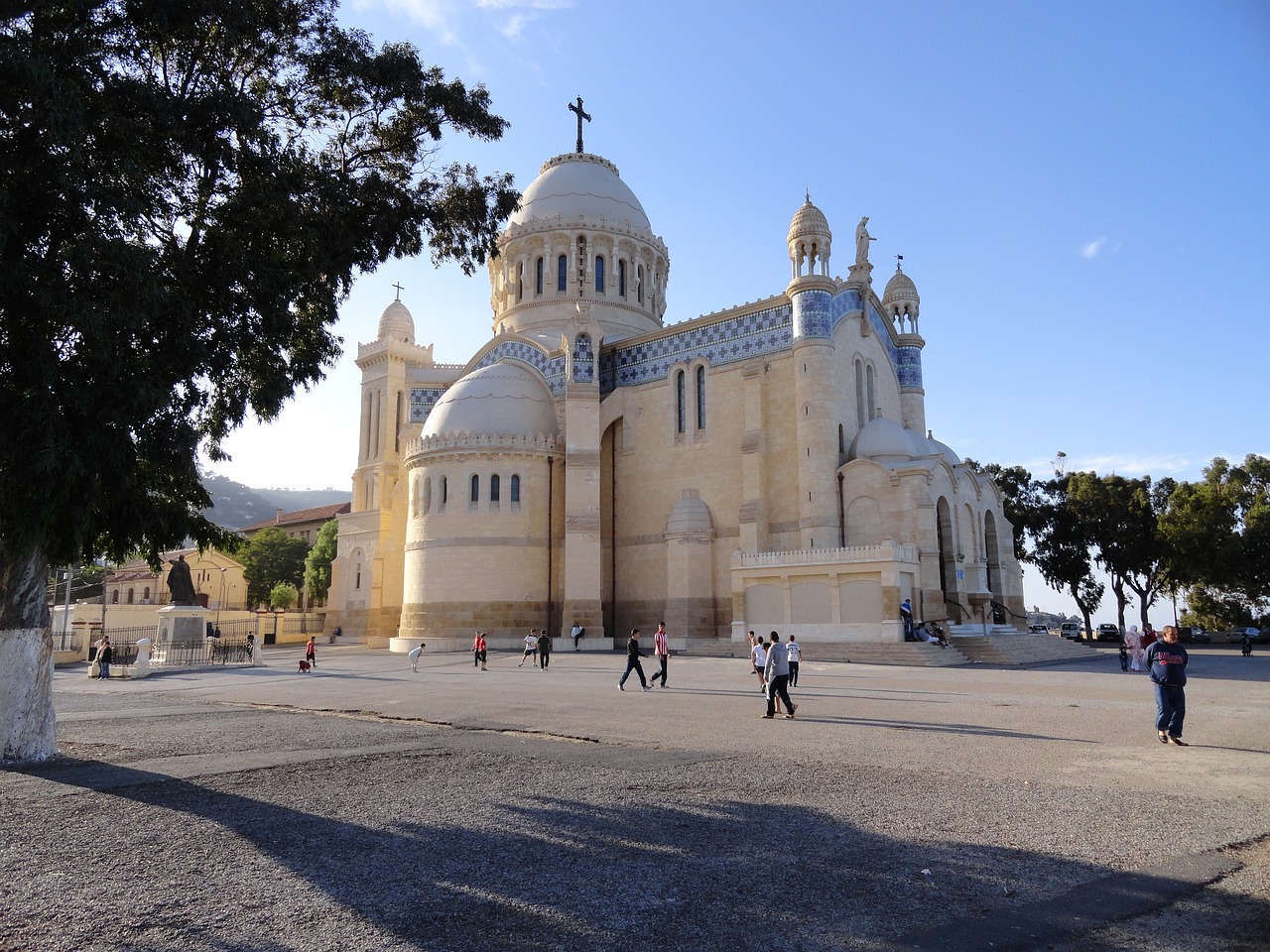
Places to Visit
-
1. The Casbah of Algiers
A UNESCO World Heritage site, the Casbah is a labyrinth of narrow streets, ancient houses, and historic mosques. Key attractions include the Ketchaoua Mosque and the ruins of the 16th-century El Djazair fortress. -
2. Notre-Dame d’Afrique
Perched on a hill overlooking the city, this Roman Catholic basilica is a masterpiece of architecture. Its blend of Byzantine and Moorish styles, combined with breathtaking views, makes it a must-visit spot. -
3. Martyrs’ Memorial
This towering monument commemorates Algeria’s struggle for independence. Its unique shape and location offer incredible photo opportunities. -
4. The Botanical Garden of Hamma
Spread over 32 hectares, this garden is a green oasis in the heart of Algiers. It features a wide variety of plant species and is a perfect spot for a peaceful stroll. -
5. Bardo National Museum
Housed in a former Ottoman palace, this museum showcases artifacts from Algeria’s prehistoric and Roman eras, providing insights into the country’s rich history. -
6. The Great Mosque of Algiers
Known as Djamaa El Kebir, it is one of the oldest mosques in Algiers. Its simple yet elegant design reflects traditional Islamic architecture.
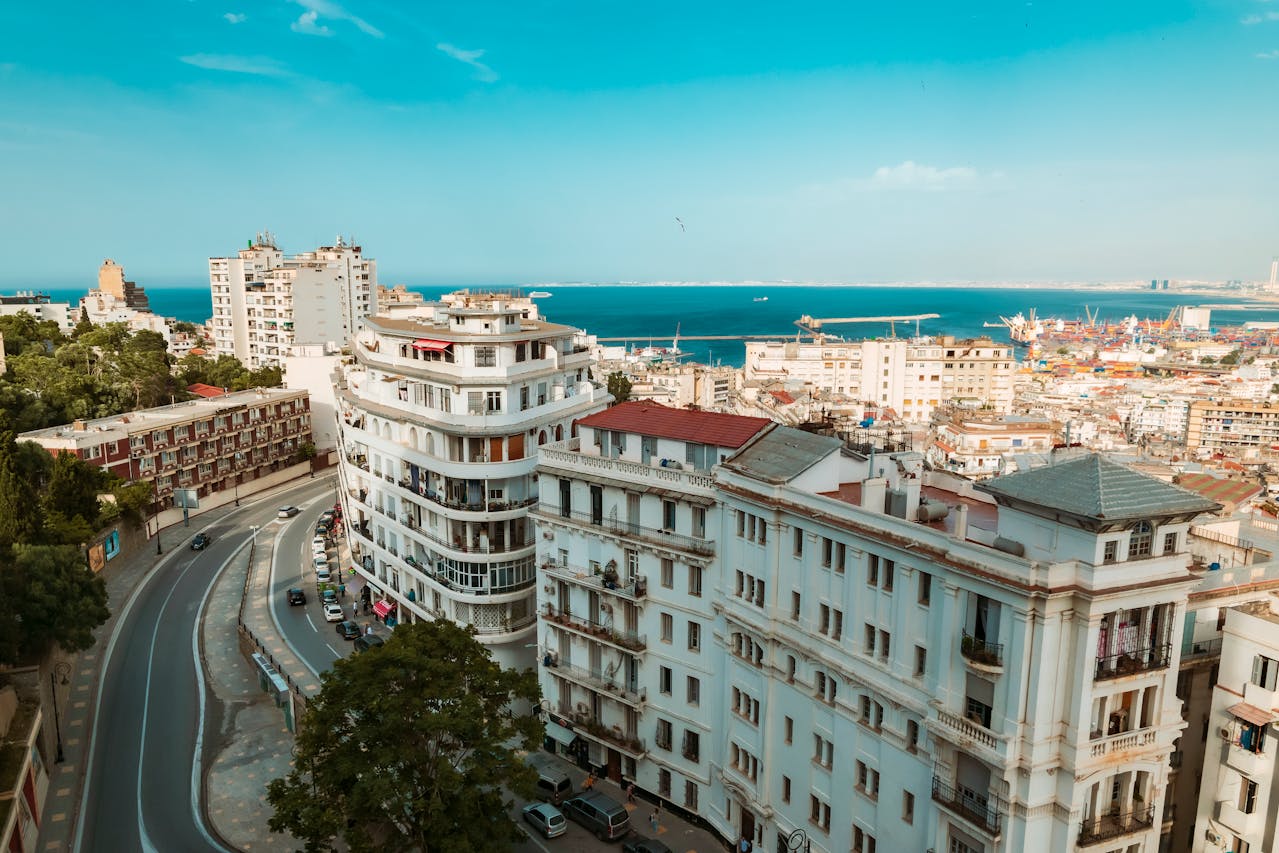
Yearly Climate
Algiers enjoys a Mediterranean climate with mild, wet winters and hot, dry summers.
- Winter (December to February): Temperatures average between 10°C and 16°C. Rainfall is common, but the weather remains pleasant.
- Spring (March to May): Warm and comfortable, with blooming flowers and temperatures ranging from 15°C to 22°C.
- Summer (June to August): Hot and sunny, with temperatures soaring to 30°C or more. Coastal areas offer refreshing sea breezes.
- Autumn (September to November): Moderate and dry, with temperatures between 18°C and 25°C.
Best Time of Year to Visit
The ideal time to visit Algiers is in spring (March to May) or autumn (September to November). During these months, the weather is mild and ideal for outdoor activities. The blooming gardens in spring and the golden hues of autumn add charm to the city’s landscapes.
Avoid peak summer if you are not accustomed to heat, though the coastal breeze helps make the summer bearable. Winter is perfect for travelers seeking a quieter experience.
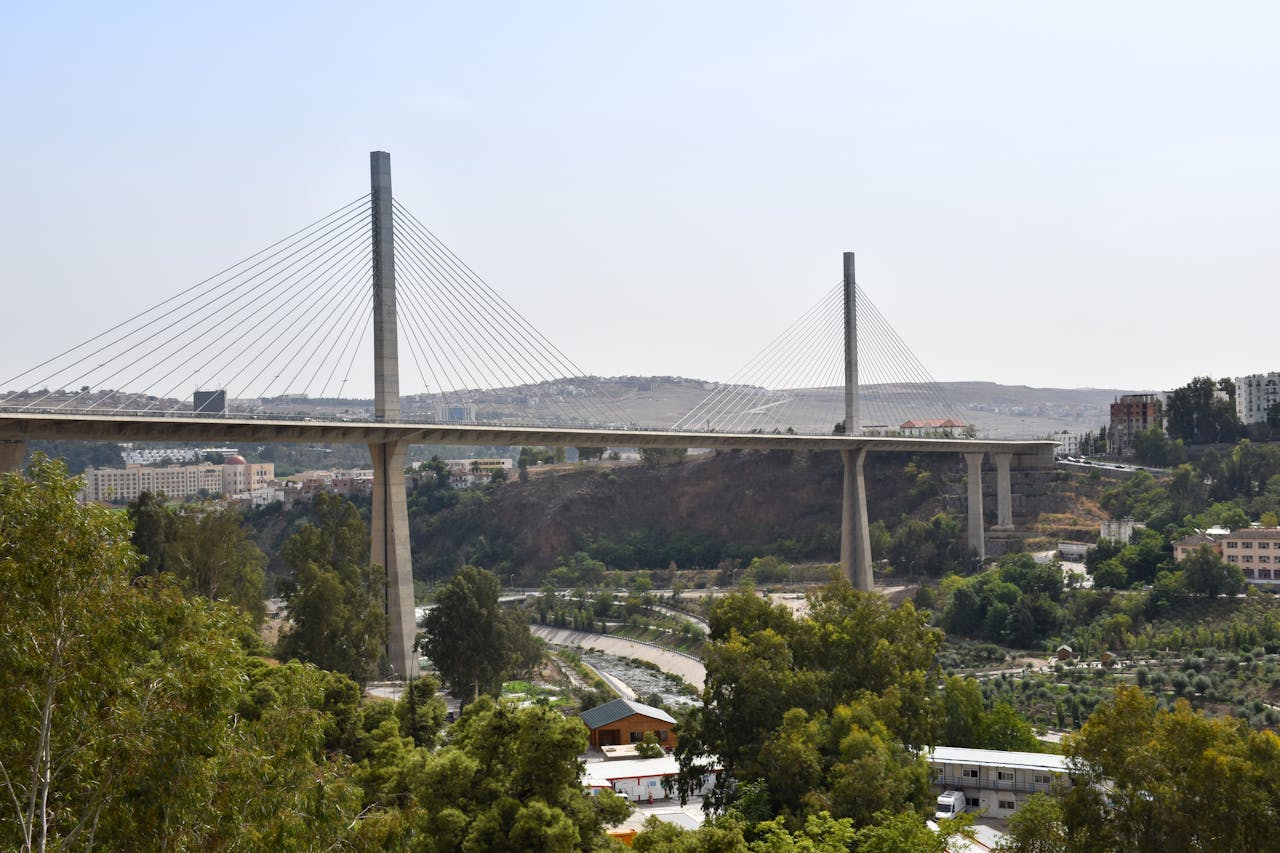
In Summary…
Algiers is a city of contrasts and connections. Its rich history, diverse architecture, and dynamic culture make it a top destination for travelers. Whether you are exploring its ancient Casbah, marveling at its basilicas and mosques, or enjoying the Mediterranean breeze, Algiers offers an unforgettable experience.

